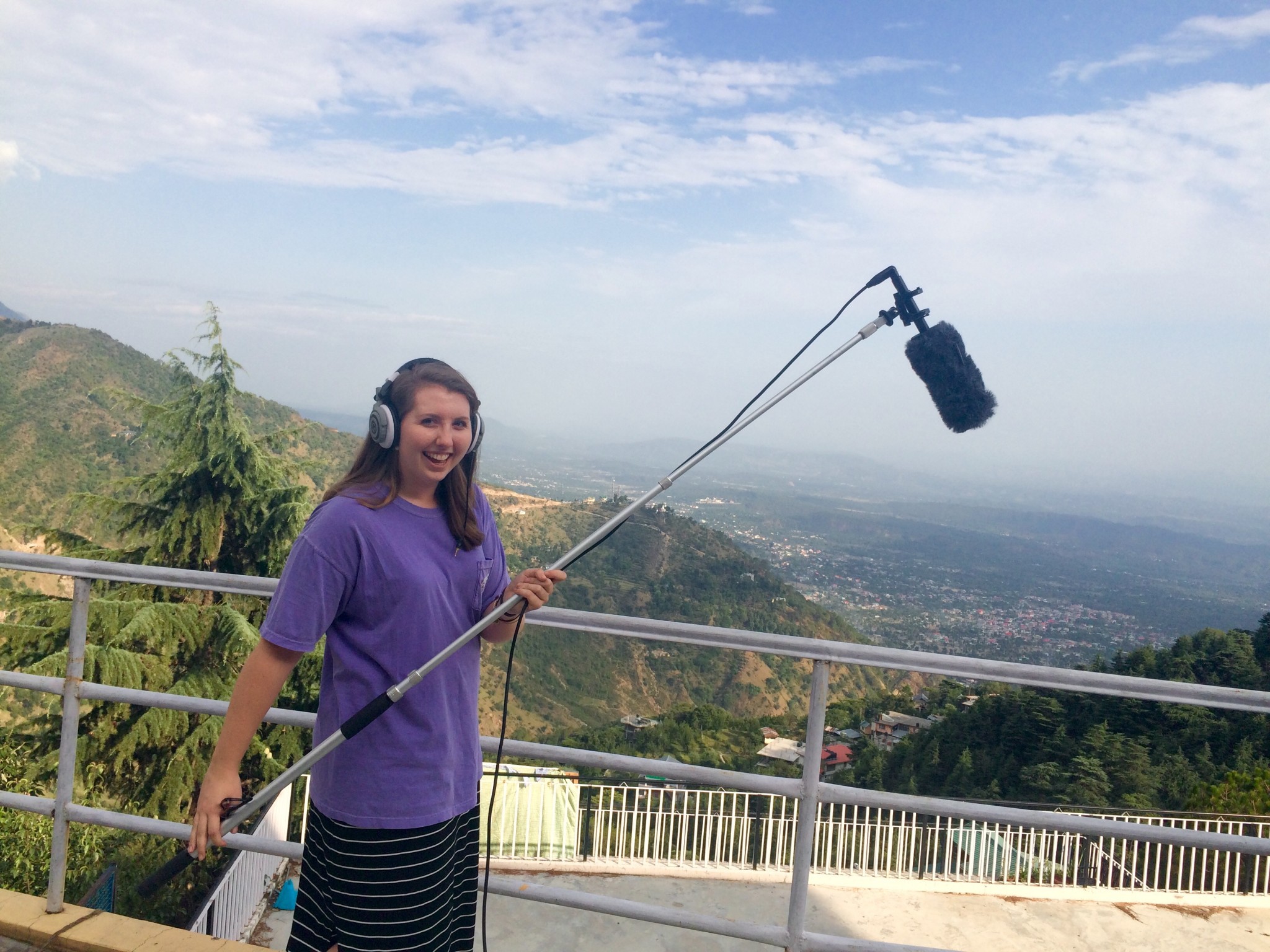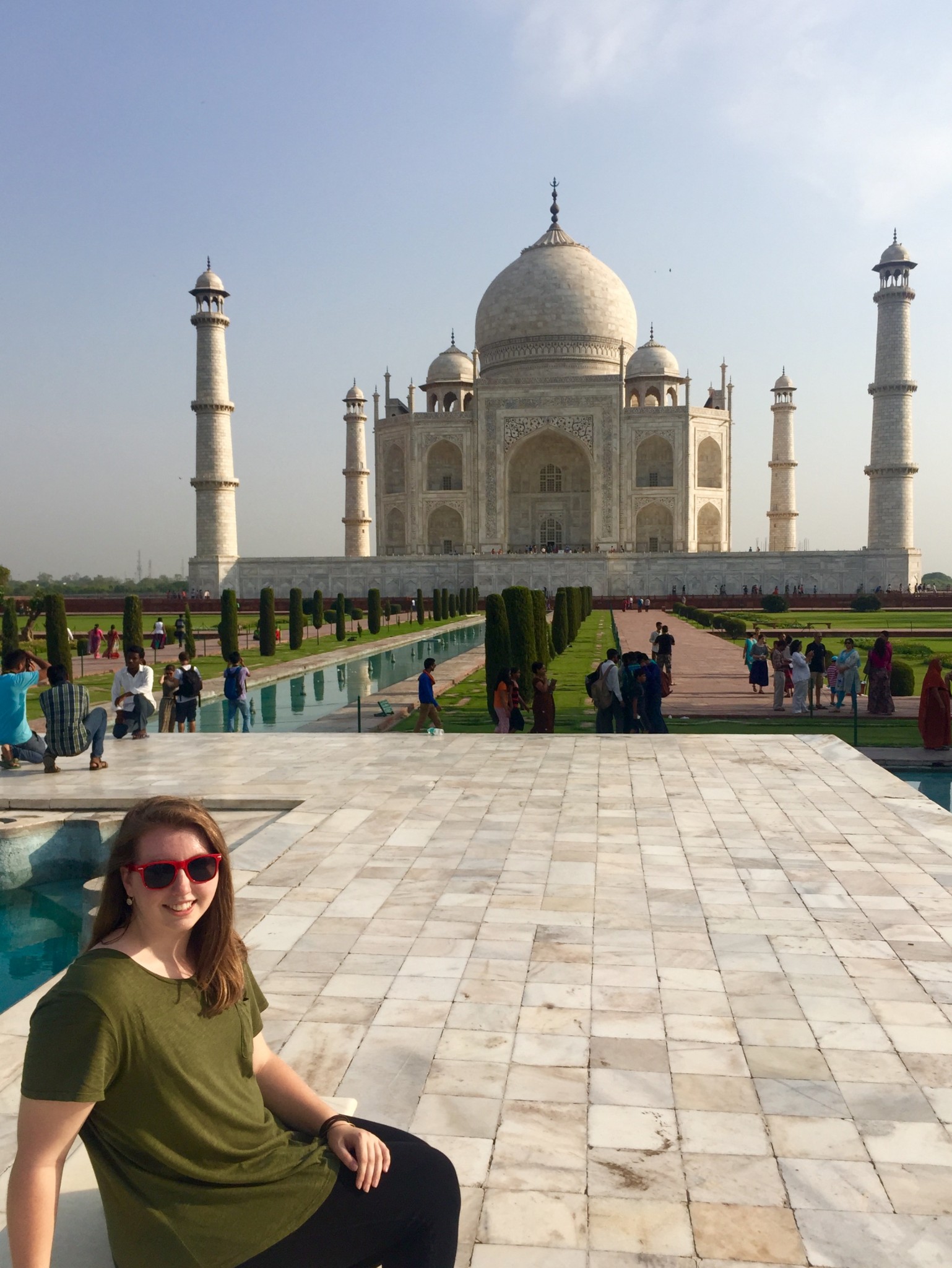Jill Tyler, Honors College fellow and anthropology major, worked with the Tibetans in Exile Today program to document the lives of Tibetan refugees in India. After volunteering to conduct an interview with Sonam, a Tibetan freedom fighter, Jill recounts the surprise commonality she found with him and the reasons she considers herself forever changed by their shared experience.
When I signed up for the Tibetans in Exile Today (TEXT) program, I expected many things. I expected to gain an in-depth education on Tibetan culture. I expected to learn skills in video/audio work and to receive a crash course in journalism. I expected to live in the closest thing to a developing nation I had ever been to. But the one thing—the one person—I didn’t expect was Sonam. And never in a million years would I have ever seen myself sharing the hour with him that I did. It was an hour unlike any I had lived before.
TEXT is a program that allows students to provide Tibetan refugees with a platform to share their stories, opinions, and feelings about the political state of Tibet. India has given land to the Tibetans where they have lived and operated as a government in exile since 1959. We traveled to refugee settlements throughout the country, listening to anyone who would talk to us. While some interviews were pre-determined and assigned, many times they would happen and be assigned “on the fly.”
About halfway through the trip we were in Dehradun, a settlement made with the intention to house the arts and crafts industry of the refugees. All day we had been interviewing artists and entrepreneurs whose stories were of turning beauty into livelihood. The art was easy on the eyes, and, for the most part, the interviews were easy on the ears. They were inspiring and hopeful testimonies to what these people were making out of the cards they had been dealt.
Meeting a Freedom Fighter on the ‘Rooftop to the World’
As evening came, we found ourselves at an ordinary-looking building, one I would have passed without a second glance if I had been on my own. Instead we entered, climbed three flights of stairs, and exited to a rooftop with a breathtaking view of the foothills of the Himalayas. The rooftop to the world. Dr. Burris announced we’d be having an interview here and that he needed a volunteer. Knowing that I would have to volunteer sooner or later, I raised my hand.
Within the next fifteen minutes, I was told that I would be interviewing a man who in his youth was a freedom fighter for the Tibetan cause and helped the Dalai Lama escape to India. As I tried to prepare my questions, I quickly went through all the ways this individual and I were different: Most of my days are ahead of me, his are behind him. I am a woman getting a college education. He is a man whose only education was in survival. I am a citizen of an independent nation. He is a refugee who has spent his life being shuffled from settlement to settlement. Before I even began, I felt as if I would fail. How could this man and I possibly make a meaningful connection in an hour when there was so much between us?
Something Shared
Then we started talking, and all my worries faded away. I became lost and enraptured in Sonam’s story. Yes, many of the things he had experienced in his lifetime were completely foreign to me. I will most likely never have to journey through ice and snow and mountains with little to no food for months on end. But the one thing I found we had in common was a pride and love for our home, one that could face many trials and still stand tall.
My final question to him was if he thought he would ever live to return to Tibet, a place that is now seen in his memories with so much violence and sadness. He answered, “If I died tomorrow, but it meant I would be in Tibet, then I would die a happy man. Because my bones would be buried in the earth I know. I would finally be home again. That is all I want.”

Jill working audio for an interview
Without the TEXT Program, Sonam would have never spoken those words to me. I would not have been forever affected by his story. This program is an invaluable opportunity to students at the University of Arkansas, not because it shows you how different you are from these people, but because it reveals to you the ties that bind humanity. Every life has value, and every story is worth hearing.


